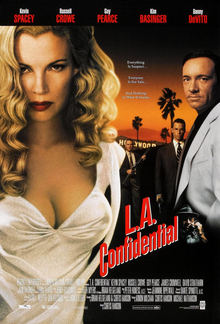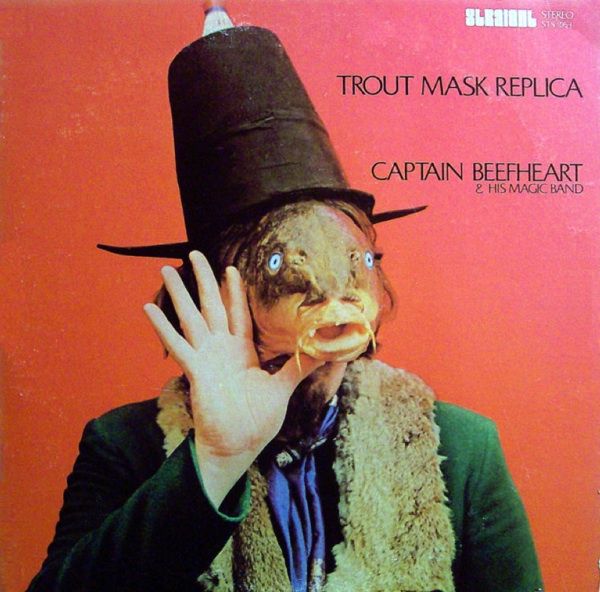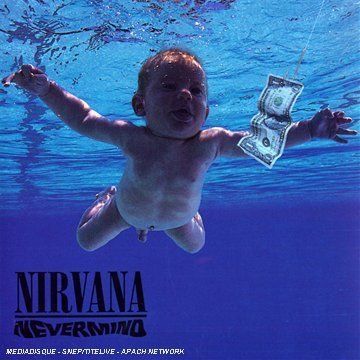| THE DEMAND DOCTOR -- by John Cassidy Posted by (former member) - Oct 11, 2011 - 10:00pm |
|
THE DEMAND DOCTOR What would John Maynard Keynes tell us to do now - and should we listen? by John Cassidy The New Yorker October 10, 2011
So conditions are grim when, on New Year's Day, 1935, the English economist John Maynard Keynes mails a letter to George Bernard Shaw. "I believe myself to be writing a book on economic theory which will largely revolutionize—not, I suppose, at once but in the course of the next ten years—the way the world thinks about economic problems," Keynes tells his friend. "I can't expect you, or anyone else, to believe this at the present stage. But for myself I don't merely hope what I say,-in my own mind, I'm quite sure." Keynes is right. When "The General Theory of Employment, Interest and Money" appears, in February, 1936, it provides an intellectual justification for the large-scale public-works programs that Keynes has been advocating for years, and that F.D.R.'s Administration has recently launched as part of the New Deal. Keynes argues against the idea that the economy will recover on its own, and in favor of active measures—the manipulation of public expenditures, taxes, and interest rates—to spur growth and employment. His theory will become the keynote of a new era of economic policy-making. The main impediment to such policies, Keynes writes, is the lingering influence of outmoded theories: Today, some regard Keynes himself as that academic scribbler, entrancing a generation of mindless followers. For many others, he's the economist whose sweeping theory, shaped by a Great Depression, remains the surest guide out of our current woes. In the wake of the global financial crisis of 2007-09, President George W. Bush and President Barack Obama both launched tax-relief and spending initiatives designed to stimulate growth. Nicolas Sarkozy, in France, and Gordon Brown, in Britain, proclaimed the end of the free-market era. We were all Keynesians, and knew it-for about five minutes. In 2010, Britain's new government turned away from expansionary policies and introduced major budget cuts, making arguments that harked back to Keynes's opponents in the nineteen-thirties, such as Friedrich Hayek, an Austrian economist who taught at the London School of Economics. Soon Greece, Ireland, and other debt-burdened European countries were launching ever more Draconian austerity programs. On this side of the Atlantic, with unemployment remaining stubbornly high, conservative economists insisted that the Keynesian medicine had failed to cure the patient and had perhaps even worsened the disease-an argument seized upon by Republican politicians. "Keynesian policy and Keynesian theory is now done," Governor Rick Perry, of Texas, declared during a Republican Presidential candidates' debate last month. "We'll never have that experiment on America again." The following night, however, President Obama proposed what, in all but name, was another Keynesian stimulus package: a four-hundred-and-fifty-billion-dollar jobs program, consisting of tax cuts and increases in federal spending. Seventy-five years after the publication of "The General Theory," there is a fierce and consequential argument about what, in Keynes's economic theory, is living and what, as Perry would have it, is "done." Has the global economy's stuttering progress since 2008 demonstrated the limitations of Keynesian policies-or the dangers of abandoning them prematurely? The publishing industry, at least, has been bullish on Keynes in the past few years. Robert Skidelsky, the author of a monumental three-volume Keynes biography, responded to the financial crisis with a new primer titled "Keynes: The Return of the Master." Another eminent English historian, Peter Clarke, followed up with "Keynes: The Rise, Fall and Return of the 20th Century's Most Influential Economist," while new collections on Keynes and Keynesianism have appeared from Cambridge University and M.I.T. This fall, there is "Capitalist Revolutionary: John Maynard Keynes," by Roger E. Backhouse, an economic historian at the University of Birmingham, and Bradley W. Bateman, an economist at Denison University; "Keynes Hayek: The Clash That Defined Modern Economics," by the British journalist Nicholas Wapshott; and "Grand Pursuit," a history of economics by Sylvia Nasar, the author of "A Beautiful Mind," which devotes many pages to Keynes and his contemporaries. So what was the core of his message? Before the Great Depression, most economists adhered to a Newtonian conception of the economy as a self-correcting system. When the economy entered a slump, businesses laid off workers and shut down factories-but these negative trends contained their own remedy. The trick was to look at price changes. Unemployment drove down wages (the price of labor) until firms found it profitable to start hiring again. Idling factories drove down interest rates (the price of borrowing) until entrepreneurs found it worthwhile to take out loans and re-start production. Before very long, prosperity would be restored. Attempts to hasten this process were liable to interfere with the natural forces of adjustment and make things worse. As Hayek wrote in "Prices and Production" (1931), "The only way permanently to ‘mobilize' all available resources is... not to use artificial stimulants-whether during a crisis or thereafter-but to leave it to time to effect a permanent cure." In "The General Theory," Keynes took aim at this view of the world. His central insight was that the economy was driven not by prices but by what he called "effective demand"-the over-all level of demand for goods and services, whether cars or meals in fancy restaurants. If car manufacturers perceived that the demand for their products was lagging, they wouldn't hire new workers, however low wages fell. If a restaurateur had vacant tables night after night, he would have no incentive to borrow money and open a new venture, even if his bank was offering him cheap loans. In such a situation, the economy could easily remain stuck in a rut, until some outside agency-the government was Keynes's favored candidate-intervened and spurred spending. Only then would private businesses be emboldened to expand production and hire workers. Nasar, in her capacious and absorbing book, makes the key point well: For three decades after the Second World War, Keynes's theory provided the framework for policymaking on both sides of the Atlantic. The West enjoyed a time of rapid growth and rising standards of living, and although it would be simplistic to ascribe these trends solely to the prescriptions of policymakers, economists who balked at Keynesian doctrine were often cast aside. Three-quarters of a century later, Keynes's notion of "effective demand," now usually called "aggregate demand," is still a mainstay of policy making around the world. Whenever the economy stumbles and unemployment starts climbing, discussion inevitably centers on what can be done to boost spending and investment. Few economists, on the left or the right, seriously advise the government to sit on its hands and let the price system work its magic. Rather, the conversation turns on what methods the authorities should use to stimulate the economy, besides cutting interest rates. Liberal economists, like Paul Krugman and Joseph Stiglitz, usually favor infrastructure spending. Conservative economists, like Greg Mankiw and Glenn Hubbard, tend to prefer tax cuts. But neither group questions the need for the government to step in and bolster demand. In the course of his career, Keynes advocated tax cuts and interest-rate cuts, but he didn't limit himself to those measures. During the nineteen-twenties, when the unemployment rate reached double figures, and British monetary policy was hamstrung by the gold standard, Keynes called for additional spending on public housing, roadworks, and other civic projects. "Let us be up and doing, using our idle resources to increase our wealth," he wrote in 1928. "With men and plants unemployed, it is ridiculous to say that we cannot afford these new developments. It is precisely with these plants and these men that we shall afford them." With the onset of the Great Depression, Keynes stepped up his calls for action. But, as outlays on unemployment benefits increased and tax revenues declined, the budget deficit ballooned, generating alarm at His Majesty's Treasury. In the summer of 1931, the government made deep spending cuts, intending to restore confidence in government finances. Keynes warned that the effect would be to worsen the slump, throwing more people out of work. He said that budget deficits were a by-product of recessions, and that they served a useful purpose: "For Government borrowing of one kind or another is nature's remedy, so to speak, for preventing business losses from being, in so severe a slump as the present one, so great as to bring production altogether to a standstill." As the Depression deepened, seeming to confirm his warnings, Keynes sharpened his theoretical arguments. In 1933, drawing on an article by his student Richard Kahn, he made the case that one dollar of additional government spending-on a new railway station, say-could ultimately generate two dollars, or even more, in additional output and income. This was the so-called "multiplier'' effect. As the unemployed were set to work on public projects, he reasoned, they would spend their wages on other goods and services, which would prompt businesses to take on more workers. Those workers, in turn, would spend more, leading to further hiring, and so on. What's more, all of these newly employed workers would be paying taxes, which would bring down the budget deficit. "It is a complete mistake to believe that there is a dilemma between schemes for increasing employment and schemes for balancing the Budget," Keynes wrote. "There is no possibility of balancing the Budget except by increasing the national income, which is much the same thing as increasing employment." In Keynes's day, many people-including politicians sympathetic to Keynes-were suspicious of the multiplier. The whole thing smacked of sophistry. Wapshott, in a long overdue and well-researched book that usefully gathers together much hitherto scattered information, recounts Keynes's 1934 visit to the White House, where he expounded the logic of the multiplier to F.D.R. After he left, Roosevelt remarked to Frances Perkins, his Labor Secretary, "I saw your friend Keynes. He left a whole rigmarole of figures. He must be a mathematician rather than a political economist." Despite the enormous public-works projects of the New Deal, F.D.R. didn't formally adopt deficit spending as a policy tool. Indeed, he kept a keen eye on the red ink. In 1937, with the economy on the mend, he ordered tax hikes and spending cuts, which caused the economy to crater again. President Truman was even more suspicious of Keynesian theorizing. "Nobody can ever convince me that Government can spend a dollar that it's not got," he to Leon Keyserling, a Keynesian economist who chaired his Council of Economic Advisers. "I'm just a country boy." The multiplier continues to spark controversy. Echoing the arguments that Keynes's opponents at the Treasury made during the nineteen-thirties, conservative economists like Robert Barro, at Harvard, argue that it is close to zero: for every dollar the government borrows and spends, spending elsewhere in the economy falls by almost the same amount. Whenever individuals see the government boosting spending or cutting taxes on a temporary basis, Barro maintains, they figure that these policies will eventually have to be paid for in the form of higher taxes. As a result, they set aside extra money in savings, which cancels out the stimulus. Barro's caution may apply in certain conditions-say, a highly indebted economy with close to full employment. It's certainly true that the Keynesian multiplier varies according to how stimulus funds are spent; how the central bank reacts to higher government spending (if it raises interest rates, interest-sensitive spending will fall, reducing the multiplier); and, most important, whether workers and machinery are lying idle. But Keynes didn't advocate deficit spending for an economy at full employment. It was only when the economy was in a deep slump, he thought, that higher output "could be provided without much change of price by home resources which are at present unemployed." This jibes with history. Immediately before and during the Second World War, the U.S. government borrowed unprecedented sums to finance the military buildup, and the economy finally recovered from the Great Depression. In 1937, one in seven American workers was jobless; in 1944, one in a hundred was. A wartime economy may present a special case, but a recent working paper published by the National Bureau of Economic Research looked at data going back to 1980 and found that government investments in infrastructure and civic projects had a multiplier of 1.8-pretty close to Keynes's estimate. So why didn't the Obama Administration's 2009 stimulus package usher in a true recovery? Keynes would have pointed out that, with households and firms intent on paying down debts and building up their savings in the aftermath of a credit binge, large-scale deficit spending is needed merely to prevent a recession from turning into a depression. With interest rates already close to zero, Keynes would have argued that the economy was stuck in a "liquidity trap," greatly limiting the Federal Reserve's scope for further action. He would also have noted that the stimulus was-especially compared with the devastation it meant to address-rather small: equivalent to less than two per cent of G.D.P. a year for three years. Even this overstates its magnitude, given that much of the increase in federal spending was offset by budget cuts at the state and local levels. In its totality, government spending didn't increase much at all. Between 2007 and the first half of this year, it rose by about three per cent in real dollars. Besides, recovering from a financial meltdown requires more than government spending: the banking system has to be recapitalized (in the nineteen-nineties, Japan's cash-hoarding "zombie banks" were a drag on its stimulus programs); bad debts have to be written down; sector-specific problems must be addressed. Following the crisis of 2008, both the Bush and the Obama Administrations moved promptly to shore up the banking system, but they neglected to deal with the housing debacle. A more effective mortgage-modification program for homeowners who are under water on their loans would have helped. In 2009, when the Obama Administration launched a refinancing program, it predicted that between three and four million people would get some relief, but so far fewer than one million mortgages have been modified. The lingering effects of the housing crisis continue to weigh down the rest of the economy. Finally, Keynes would have directed our attention to international problems. A confirmed internationalist, Keynes would undoubtedly have supported the head of the Chinese central bank's call, in 2009, for the creation of a new global reserve currency to be issued and controlled by the International Monetary Fund. (Keynes proposed almost precisely the same thing in 1944, at Bretton Woods, where he helped design a new international economic system, but the Americans ruled it out.) The rationale is that if the issuer of the reserve currency acts irresponsibly, the rest of the world is at its mercy, so it might be better to have an international currency that no single country controls. For now, the Chinese proposal has gone nowhere; the world's focus is elsewhere. But, as the Asian economies continue their rise, it is sure to come back onto the agenda. And Keynes would have had strong views about the European sovereign-debt crisis. The U.K. economy of his day, like the current U.S. economy, was dependent on global capital flows, and Keynes knew what excessive government debts could do to an economy. In 1919, he was an adviser to the British delegation at the peace talks in Paris, which saddled Germany and Austria with crushing debts. Outraged by this Carthaginian settlement, he wrote his first best-seller, "The Economic Consequences of the Peace," warning that the Versailles Treaty would prove disastrous for the victors as well as for the defeated. Today, he would be advocating major debt write-downs for countries like Greece and Portugal. The so-called "rescue packages" that these nations have received in recent years have barely reduced their debt, while the austerity policies imposed on them have plunged their economies deeper into the abyss, exactly as Keynesian theory would predict. Indeed, these days the strongest evidence for Keynesianism has been negative. The recent slowdown in the U.S. economy occurred just as Obama's 2009 stimulus package was running dry. The U.K. economy provides an even more striking case study. As in this country, the authorities reacted to the 2008 financial crisis by cutting interest rates, boosting public expenditure, and allowing the budget deficit to rise sharply. In 2009 and in the first part of 2010, the economy began to recover. But since the middle of last year, when the Conservative-Liberal coalition announced substantial budget cuts to balance the budget, growth has virtually disappeared. "The reason the current strategy will fail was succinctly stated by John Maynard Keybes," Robert Skidelsky and the economist Felix Martin wrote in the Financial Times recently. "Growth depends on aggregate demand. If you reduce aggregate demand, you reduce growth." Yet Keynes was anything but a spendthrift. When deficits and debts reached historically high levels, he believed, it was necessary to spell out how they would be reduced in the long term. As Backhouse and Bateman observe in their timely and provocative reappraisal, Keynes never said that deficits don't matter (the lesson that Dick Cheney reportedly drew from President Reagan). He believed not only that large-scale deficit spending should be confined to recessions, when business investment was unusually curtailed, but that it should be directed mainly toward long-term capital projects that eventually would pay for themselves. When some of his followers, by way of postwar planning, advocated using tax cuts and deficit spending to "fine-tune" the economy on an ongoing basis, Keynes struck a note of caution. "If serious unemployment does develop, deficit financing is absolutely certain to happen, and I should like to keep free to object hereafter to the more objectionable forms of it," he wrote. If Keynes was scarcely the deficit dove some take him to be, efforts to portray him as some sort of socialist are even more risible. When he wasn't busy writing, teaching, or advising governments, he wagered on the global markets in the manner of a modern hedge-fund manager. He also served as the director of an insurance company and as the portfolio manager of the King's College endowment. An Old Etonian and the son of a Cambridge economist, he never made any pretense about his privileged background, or where his social and political sympathies lay. "If I am going to pursue sectional interests at all, I shall pursue my own," he wrote in the nineteen-twenties. "The Class war will find me on the side of the educated bourgeoisie." As the Depression proceeded, and some of Keynes's colleagues and students turned to Communism, Keynes declared the theory of Marxism to be "complicated hocus pocus." When Beatrice and Sidney Webb, the Fabian grandees, went to Russia and returned proclaiming Stalinism to be the way of the future, Keynes was, as Nasar recounts, aghast. Asked to contribute to an essay collection for Beatrice's eightieth birthday, he said the only sentence that came to him was "Mrs. Webb, not being a Soviet politician, has managed to survive to the age of eighty." Astute conservatives have sometimes acknowledged that, fundamentally, Keynes was one of them. He came not to bury free enterprise but to save it from itself. "It is certain that the world will not much longer tolerate the unemployment which... is associated and in my view inevitably associated with present-day capitalistic individualism," he wrote in his magnum opus. "But it may be possible by a right analysis of the problem to cure the disease whilst preserving efficiency and freedom." During the Second World War, some economists hailed the introduction of price controls and central planning; Keynes viewed this policy as a temporary expedient that shouldn't be sustained. He even had praise for Hayek's controversial book "The Road to Serfdom" (1944), which compared wartime Britain to Soviet Russia and Nazi Germany. "Morally and philosophically," he wrote to Hayek, "I find myself in agreement with virtually the whole of it." Keynes's Republican critics, as you'd guess, have more in common with him than they let on. Representative Paul Ryan, who is now railing against "the discredited economic playbook of borrow-and-spend Keynesian policies," was, as the commentator Jonathan Chait has pointed out, a strong supporter of cutting taxes on classic Keynesian grounds-to boost spending and reinvigorate a struggling economy. In a February, 2001, hearing devoted to the fiscal proposals of the recently elected George W. Bush, Ryan said, "I like my porridge hot. I think we ought to have this income tax cut fast, deeper, retroactive to January 1st, to make sure we get a good punch into the economy, juice the economy to make sure that we can avoid a hard landing." Both Democratic and Republican Administrations have supported stimulus programs; what they disagree on is how to structure and pay for them. Democrats, while pointing out that such programs generate additional tax revenues, have stopped short of claiming that they are entirely self-financing. Republicans have respected no such limits in selling the tax cuts they favor. Going back to the writings of Arthur Laffer, a Stanford-trained economist who advised President Reagan, some of them have claimed that tax cuts, by prompting people to work harder and invest more, can actually reduce the deficit. And where did Laffer get this idea? In a 2004 article entitled "The Laffer Curve: Past, Present, and Future," he cited a passage of "The Means to Prosperity" in which Keynes wrote: Reaganomics, too, was a species of Keynesianism. But any attempt to categorize Keynes along traditional left-right lines is apt to founder. In his life and in his theorizing, he delighted in paradox. As a young man, he had affairs with men, like the Bloomsbury exquisite Duncan Grant; at forty-two, he married a Russian ballerina and settled down with her until his death, twenty years later. A critic of the British financial establishment in the twenties and thirties, he ended his days as one of its pillars. Even his great intellectual contribution-the notion that economies can remain in an "equilibrium" state with mass unemployment-defies easy explanation. How exactly does it come about? Not simply because, as textbooks often suggest, prices and wages get "stuck," maybe as a result of union contracts. Keynes was convinced that, even if wages and prices are flexible, the economy could remain mired. Any economy was capable of what modern economists call "multiple equilibria": different stable points of functioning, at levels ranging from penury to prosperity. In particular, Keynes understood how a financially driven economy, like ours, can go into self-sustaining downward spirals (and upward spirals) under the influence of crowd psychology and chronic uncertainty about the future. In the classical scheme of things, banks and financial markets are treated as abstractions, which effortlessly convert savings (money) into investment (forms of capital like factories or computers). Keynes pointed out that the link between savings and investment was far from straightforward. It relied on people who are looking to make quick profits, and who are susceptible to shortsightedness, herd behavior, and panic. "Speculators may do no harm as bubbles on a steady stream of enterprise," he commented. "But the position is serious when enterprise becomes a bubble on the whirlpool of speculation. When the capital development of a country becomes a by-product of the activities of a casino, the job is likely to be ill-done." The problem isn't that Wall Street traders are reckless or stupid; Keynes had a wary respect for their smarts. The problem is that our investment choices can never be truly rationalized. "If we speak frankly," Keynes wrote, "we have to admit that our basis of knowledge for estimating the yield ten years hence of a railway, a copper mine, a textile factory, the goodwill of a patent medicine, an Atlantic liner, a building in the City of London amounts to little and sometimes to nothing." Keynes distinguished this sort of incalculable uncertainty from quantifiable risk-the risk, say, that your straight flush will be trumped by four of a kind, or that you will be killed at Russian roulette. When you decide to build a factory or take a flyer on the stock market, the arithmetic of probability and rational decision theory provide no real guidance. Such decisions can be taken, Keynes wrote, only as a result of "animal spirits-of spontaneous urge to action rather than inaction, and not as the outcome of a weighted average of quantitative benefits multiplied by quantitative probabilities." In a boom, when animal spirits are high, businesses and entrepreneurs are brimming with investment projects, which banks and other financial institutions are all too eager to finance. After a bust, the opposite applies. In Keynes's words, "If the animal spirits are dimmed and the spontaneous optimism falters, leaving us to depend on nothing but a mathematical expectation, enterprise will fade and die-though fears of loss may have a basis no more reasonable than hopes of profit had before." Five years ago, banks were extending mortgages to anybody who walked in the door; today, many good borrowers can't get credit. Corporate America, after jettisoning workers by the millions to preserve profits, is sitting on billions of dollars of cash. American households, known everywhere for their prodigal ways, have discovered the virtues of saving and thrift. Keynes's recognition of the irreducible role played by "animal spirits" points to the vanity of supposing that the economy could be wholly mastered-the dreams nurtured by the postwar generations of economic policymakers of playing the economy like an organist at his console. Keynes himself underestimated the difficulties of trying to maintain expansionary, full-employment policies for long periods. In "The General Theory," he wrote that the remedy for the business cycle "is not to be found in abolishing booms and thus keeping us in a semi-slump; but in abolishing slumps and thus keeping us permanently in a quasi-boom." When governments tried to adhere to this advice, they eventually ran into problems. In the nineteen-seventies, inflation and unemployment rose simultaneously, a phenomenon known as stagflation. Keynesian economists and policymakers struggled to respond, giving Milton Friedman and other conservative economists the opening they needed to market a modestly updated version of the pre-Keynesian free-market paradigm. There was another problem that Keynes didn't deal with adequately: preventing the sort of asset-price bubbles-that "whirlpool of speculation"-experienced in the nineteen-twenties. When policymakers signal that they will respond to any setback by pumping more cheap money into the economy, they encourage irresponsible risk-taking-something Alan Greenspan discovered to our detriment. (To be sure, many economists take inspiration from Keynes when they argue for taxes on financial transactions in order to curb such speculation.) Yet Keynes's own theory should have cautioned us about its practical limitations. To revive animal spirits and jolt an economy out of its rut, he tells us, the only option is to bring in the government, which, because it doesn't have to answer to worried stockholders or anxious relatives, can insure a ready demand for the output of small and large firms: "for if effective demand is deficient not only is the public scandal of wasted resources intolerable, but the individual enterpriser who seeks to bring these resources into action is operating with the odds loaded against him." All this remains true. It's just that knowing the principle is not enough. The dutiful Keynesian policymaker must decide on a certain level of borrowing and spending and also on when to withdraw the stimulus. But how much additional demand does it take to make businessmen feel optimistic when they get up in the morning? And how much debt can be sustained without roiling markets with self-fulfilling anxiety? There's no straightforward calculation that will yield the ideal policy for shifting an economy from a "bad" equilibrium to a "good" one. Writing with his high-table air of assurance, Keynes could make it sound deceptively easy to be a Keynesian. At the heart of his vision, however, there is an elusive combination of boldness and humility. It calls not merely for the management of risk but something politically far more demanding: the acknowledgement of uncertainty.â |
| 11 comments on this journal entry. |
|
Lazarus Location: Bethany |
|
|||||||||||||||||||||||||||||||
|
Lazarus Location: Bethany |
|
|||||||||||||||||||||||||||||||
|
Lazarus Location: Bethany |
|
|||||||||||||||||||||||||||||||
|
Lazarus Location: Bethany |
|
|||||||||||||||||||||||||||||||
|
Lazarus Location: Bethany |
|
|||||||||||||||||||||||||||||||
|
Lazarus Location: Bethany |
|
|||||||||||||||||||||||||||||||
|
Lazarus Location: Bethany |
|
|||||||||||||||||||||||||||||||
|
Lazarus Location: Bethany |
|
|||||||||||||||||||||||||||||||
|
(former member) |
|
|||||||||||||||||||||||||||||||
|
(former member) |
|
|||||||||||||||||||||||||||||||
|
(former member) |
|
|||||||||||||||||||||||||||||||
|
(former member) |
|
|||||||||||||||||||||||||||||||
|
(former member) |
|
|||||||||||||||||||||||||||||||
|
(former member) |
|
|||||||||||||||||||||||||||||||
|
(former member) |
|
|||||||||||||||||||||||||||||||
|
(former member) |
|
|||||||||||||||||||||||||||||||
|
(former member) |
|
|||||||||||||||||||||||||||||||
|
(former member) |
|
|||||||||||||||||||||||||||||||
|
(former member) |
|
|||||||||||||||||||||||||||||||
|
(former member) Location: hotel in Las Vegas |
|

























